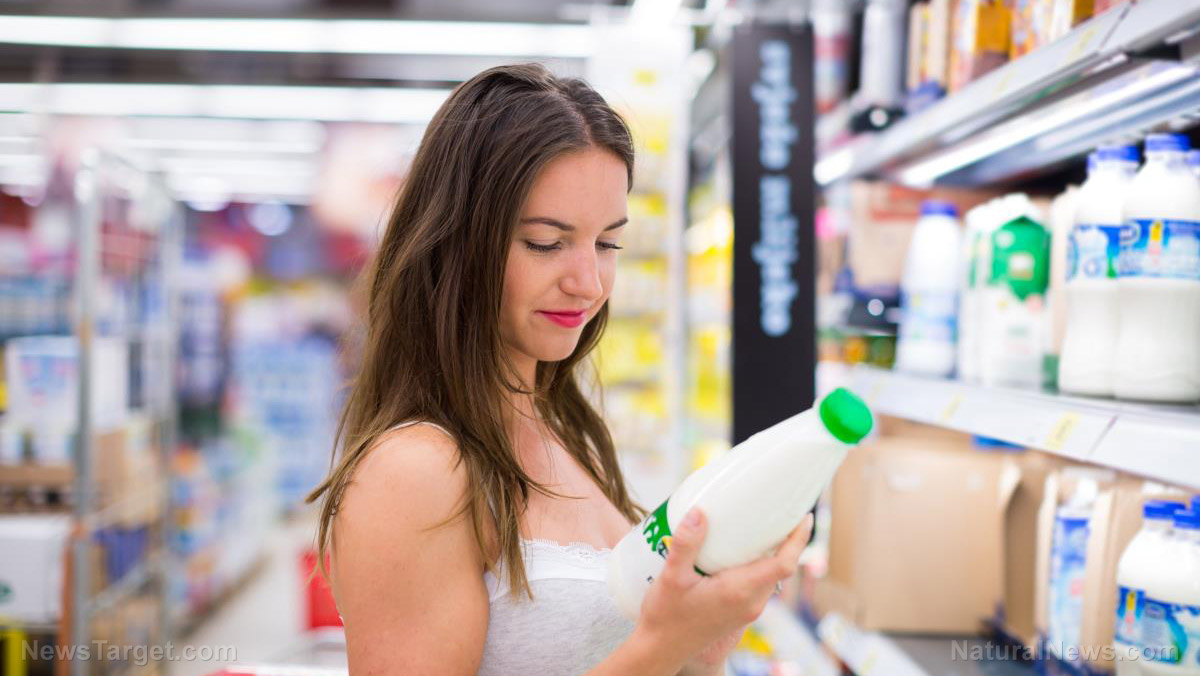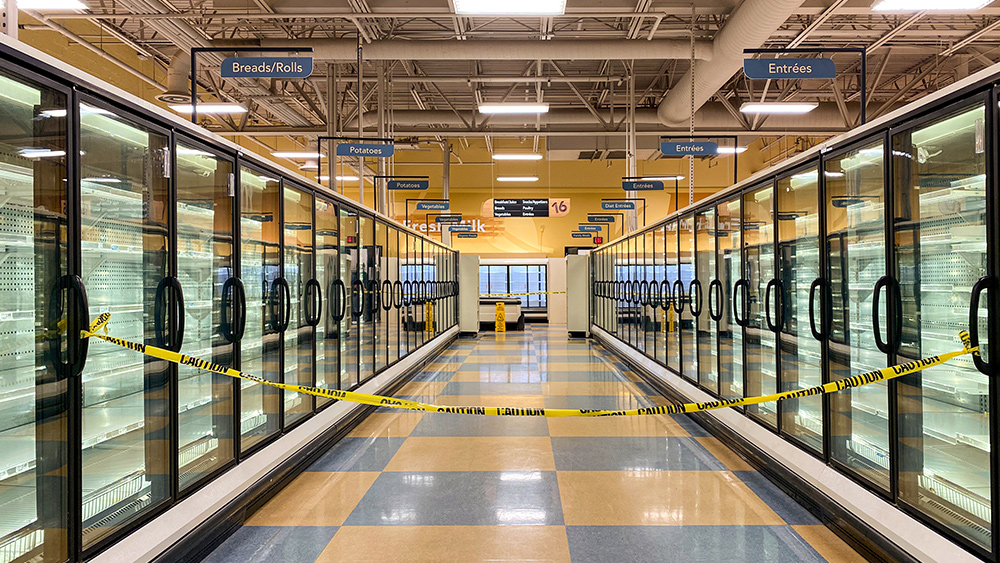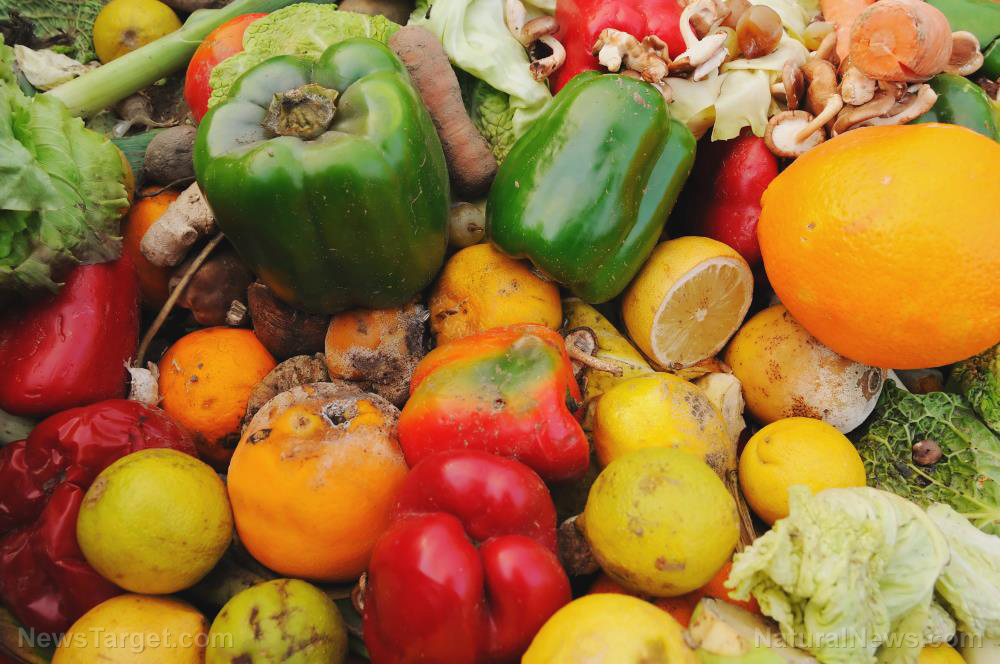Rampant theft prompts NYC grocery stores to consider locking up food
01/13/2023 / By Ethan Huff

Smash-and-grab incidents are on the rise in many of America’s urban centers, including New York City where local retailers are considering putting food items in locked cases to keep them from getting stolen.
Criminals are reportedly stealing so many products right in plain sight these days that desperate businesses all throughout the Big Apple are having to take increasingly more extreme measures to prevent their inventories from being ravaged by savages.
It used to be that small, easy-to-conceal personal care items were the primary target of thieves. However, with worsening inflationary pressures and lax law enforcement, many criminals are now grabbing dairy products, meat, produce, and whatever else they can rush out the door in a pinch.
“People have no fear of coming to your store and stealing,” says Nelson Eusebio of the National Supermarket Association, which is seeing dwindling membership in New York City as stores flee the area.
“Our employees are terrified. We have young people that come to work, young cashiers who work part-time, these kids are 16-17 years old. They’re traumatized.”
Eusebio says that everything from cosmetics to shampoo to baby formula is now being stocked behind the counter as opposed to out in the aisles like normal – and that “it’s going to be more and more of that happening,” he says.
“We’re going to have an environment where everything is behind the counter and the shopping experience is just going to be gone,” Eusebio told the media. (Related: Last year, Target lost more than $600 million due to store theft, according to its CFO.)
New York City lost 30% of its National Supermarket Association members over the past several years
As of this writing, an astounding 30 percent of the National Supermarket Association’s membership in the Big Apple has called it quits. Keep in mind that this organization represents independent grocery stores, meaning mom-and-pop shops as opposed to big-name chains.
This dramatic loss in small businesses across New York City is a disaster for the local economy, which simply cannot sustain itself when theft and other crime continues to skyrocket.
Many thieves in New York City are “serial shoplifters,” meaning they steal again and again, often from the same stores. Serial shoplifting is such a problem throughout the city that more than 4,000 area grocery stores are now calling on prosecutors to set bail for repeat thieves, as well as make assaults on retail workers a Class D felony.
A coalition called Collective Action to Protect our Stores (CAPS) is also seeing many in the industry demand both answers and solutions to the growing theft problem in New York City. CAPS is led by the National Supermarket Association, the Bodega and Small Business Group, and the Metro Supermarket Association.
“Retail theft is a significant issue in New York, and owners and operators of supermarkets, bodegas, and other stores are thinking about customer safety and their own well-being when they consider ideas like this,” CAPS told Fox News Digital.
“We formed Collective Action to Protect our stores because this is a crisis, and we need the state, city, District Attorneys and other New York leaders to start acting like it.”
Another major problem that CAPS wants to see addressed is the resale of stolen groceries. The group wants to see the purchase of stolen goods become a Class A misdemeanor, carrying with it fines and a short jail sentence.
“Criminals believe our criminal justice system is a joke,” said New York City Mayor Eric Adams. “Those arrested for grand larceny go to court, get released and on their way home from court, they’re doing another grand larceny.”
Society is falling apart at breakneck speed. To keep up with the latest, visit Collapse.news.
Sources for this article include:
Submit a correction >>
Tagged Under:
chaos, Collapse, Collective Action to Protect our Stores, crime, crime rates, economic collapse, food, food collapse, food inflation, food police, food riots, food supply, grocers, grocery, Inflation, locked cases, New York City, panic, retail theft, SHTF, theft, theft deterrencer, unrest
This article may contain statements that reflect the opinion of the author
RECENT NEWS & ARTICLES
COPYRIGHT © 2017 GROCERY NEWS




















